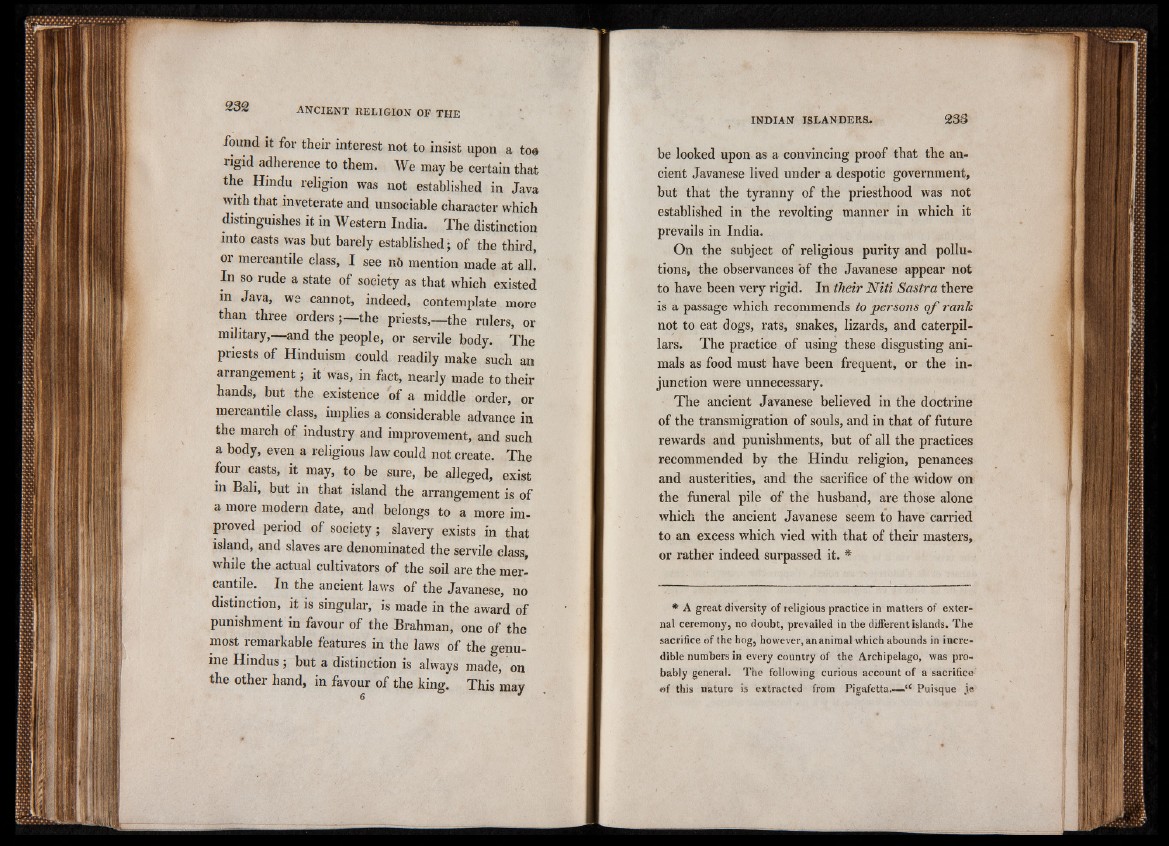
found it for their interest not to insist upon a to®
rigid adherence to them. We may be certain that
the Hindu religion was not established in Java
with that inveterate and unsociable character which
distinguishes it in Western India. The distinction
into casts was but barely established; of the third,
or mercantile class, I see n6 mention made at all.
In so rude a state of society as that which existed
in Java, we cannot, indeed, contemplate more
than three o r d e r s t h e priests,—the rulers, or
military,—and the people, or servile body. The
priests of Hinduism could readily make such an
arrangement; it was, in fact, nearly made to their
hands, but the existence of a middle order, or
mercantile class, implies a considerable advance in
the march of industry and improvement, and such
a body, even a religious law could not create. The
four casts, it may, to be sure, be alleged, exist
in Bali, but in that island the arrangement is of
a more modern date, and belongs to a more improved
period of society; slavery exists in that
island, and slaves are denominated the servile class,
while the actual cultivators of the soil are the mercantile.
In the ancient laws of the Javanese, no
distinction, it is singular, is made in the award of
punishment in favour of the Brahman, one of the
most remarkable features in the laws of the genuine
Hindus; but a distinction is always made, on
the other hand, in favour of the king. This may
be looked upon as a convincing proof that the ancient
Javanese lived under a despotic government,
but that the tyranny of the priesthood was not
established in the revolting manner in which it
prevails in India.
On the subject of religious purity and pollutions,
the observances of the Javanese appear not
to have been very rigid. In their Niti Sastra there
is a passage which recommends to persons of rank
not to eat dogs, rats, snakes, lizards, and caterpillars.
The practice of using these disgusting animals
as food must have been frequent, or the injunction
were unnecessary.
The ancient Javanese believed in the doctrine
of the transmigration of souls, and in that of future
rewards and punishments, but of all the practices
recommended by the Hindu religion, penances
and austerities, and the sacrifice of the widow on
the funeral pile of the husband, are those alone
which the ancient Javanese seem to have carried
to an excess which vied with that of their masters,
or rather indeed surpassed it. *
* A great diversity of religious practice in matters of- external
ceremony, no doubt, prevailed in the different islands. The
sacrifice of the hog, however, an animal which abounds in incredible
numbers in every country of the Archipelago, was probably
general. The following curious account of a sacrifice
©f this nature is extracted from Pigafetta.— <c Puisque je